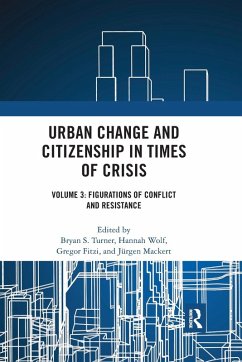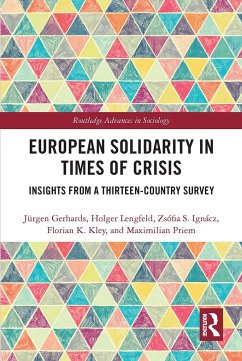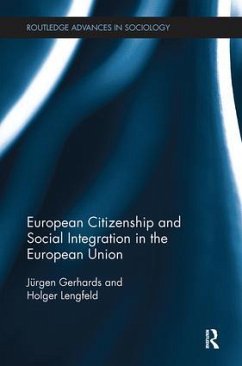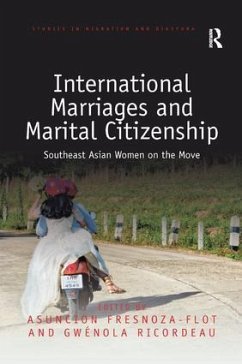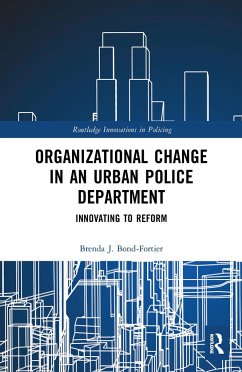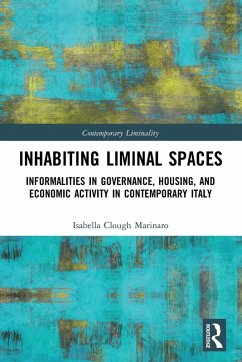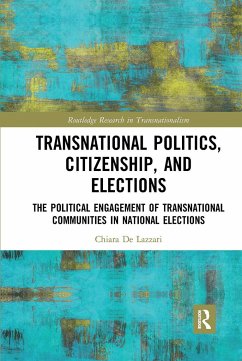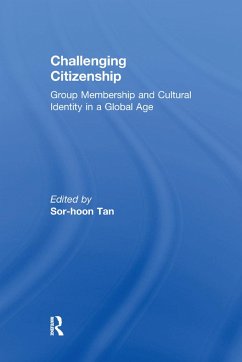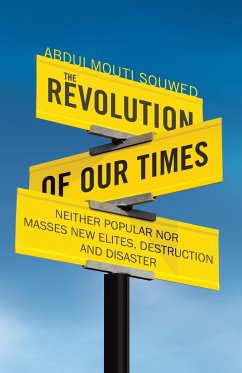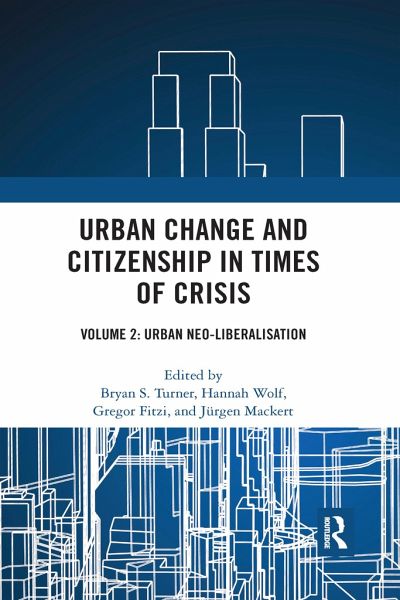
Urban Change and Citizenship in Times of Crisis
Volume 2: Urban Neo-liberalisation
Herausgeber: Turner, Bryan S.; Fitzi, Gregor; Wolf, Hannah
Versandkostenfrei!
Versandfertig in 1-2 Wochen
55,99 €
inkl. MwSt.

PAYBACK Punkte
28 °P sammeln!
The contributions to Urban neo- liberalisation bring together critical analyses of the dynamics and processes neo- liberalism has facilitated in urban contexts. Recent developments, such as intensified economic investment and exposure to aggressive strategies of banks, hedge- funds and investors, and long- term processes of market- and state- led urban restructuration, have produced uneven urban geographies and new forms of exclusion and marginality. These strategies have no less transformed the governance of cities by subordinating urban social life to rationalities and practices of competiti...
The contributions to Urban neo- liberalisation bring together critical analyses of the dynamics and processes neo- liberalism has facilitated in urban contexts. Recent developments, such as intensified economic investment and exposure to aggressive strategies of banks, hedge- funds and investors, and long- term processes of market- and state- led urban restructuration, have produced uneven urban geographies and new forms of exclusion and marginality. These strategies have no less transformed the governance of cities by subordinating urban social life to rationalities and practices of competition within and between cities, and they also heavily impact on city inhabitants' experience of everyday life. Against the backdrop of recent austerity politics and a marketisation of cities, this volume discusses processes of urban neo- liberalisation with regard to democracy and citizenship, inclusion and exclusion, opportunities, and life- chances. It addresses pressing issues of commodification of housing and home, activation of civil society, vulnerability, and the right to the city.





